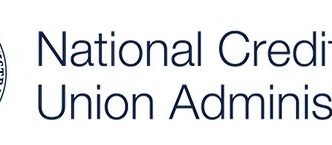As the LSCU keeps affiliated credit unions informed on developments related to COVID-19, yesterday’s webinar featured Dion Kohler, a human resources attorney and expert, who walked credit union professionals through requirements of the recently passed Families First Coronavirus Response Act (H.R.6201).
LSCU President Jared Ross began the call, recognizing the outpouring of support among credit unions, and the recognition our institutions are receiving in the three-state footprint and on a national level as lawmakers see the steps being taken to alleviate members’ financial concerns.
Kohler, who has been working with the LSCU through Atlanta-based firm Jackson Lewis P.C., is part of the second largest labor and employment law firm in the U.S. and shared a slide presentation as he clearly outlined how credit unions will need to respond to the new guidelines in H.R.6201. That slide deck is being made available to the webinar participants.
Kohler explained beginning April 1, businesses with fewer than 500 employees will be required to enact a paid provision of the Family Medical Leave Act. There is an opportunity for small businesses of 50 or fewer employees to be exempt through the Department of Labor, but that action has not yet been defined.
More than 50 questions from credit union staff were posted and answered as Kohler explained the revised guidelines of FMLA and Paid Sick Leave, which do overlap in some instances.
Under the Act, employees only need to have been employed for 30 days to be eligible for the coverage. It includes those who have children under 18, if elementary and secondary schools are closed through the public health care emergency. Workers who can work remote, if they have the capability, are required to do so and will not be covered by FMLA but are not required to be in offices beginning April 1.
The Act is not retroactive and will not cover absences prior to the April 1 implementation. Under the FMLA Employee Entitlements, workers are given 10 days of unpaid leave. After that, they would receive 10 weeks of paid leave at 2/3 of the regular pay — an amount capped at $200 a day or $10,000 in aggregate per employee.
Key points of the Act include:
- Employers cannot force an employee to use accrued paid leave.
- FMLA is still 12 weeks. It is just in a new format
- Employees do need to provide a notice of leave as soon as practical under the provision.
- As in regular FMLA, jobs are protected if an employ must be out under the new guidelines. They must be restored to the position they were in upon return, with the same benefits and pay.
- If a reduction in workforce occurred across the board, the employee would not be exempt from that.
Under the Emergency Paid Sick Leave Act (PSL), the amount paid will be capped at $511 per day and $5,110 in aggregate for the employee if he or she has the virus. It will be capped at $200 per day and $2,000 in aggregate when used for family reasons. Employees will be paid 2/3 their regular rate if they are out caring for individuals affected or children when schools and daycare are closed.
Kohler explained:
- Employees will receive 80 hours of sick leave or PTO in addition to existing sick leave policy if they are affected. That amount will be prorated for part-time employees.
- Even if you have a generous PTO plan, employers are required to provide the new 80 hours on top of the existing, and this applies to both exempt and non-exempt employees.
- If the employee has been advised by a healthcare provider to self-quarantine, they are covered with PLS.
- Employees with symptoms or seeking a diagnosis are covered.
- Employees caring for individuals who need to quarantine are covered.
- Employees caring for children when schools and licensed day care facilities are closed are covered.
Kohler covered more intricacies of the policies in answering credit union questions specific to their institution size.
The LSCU is your trusted resource during these troubled times. Jared encourages credit unions to reach out for us and to look for updated information and additional resources dedicated to the coronavirus crisis on our website: www. lscu.coop. You will also find a copy of the recorded webinar and slides there.






